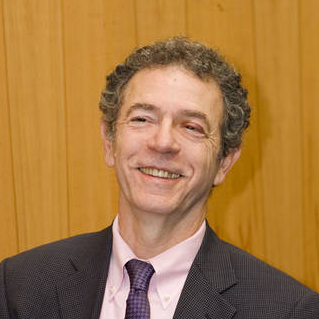
ILAN CHABAY
Ilan Chabay is Head of international Fellowships, Incubator, and the knowledge, learning, and societal change research alliance (www.KLASICA.org) at IASS, where he has been since 2012. From 2013-2016, he co-led inter-disciplinary research on ecological, social, and economic transformations in the Eurasian Arctic. He has published 60 peer-reviewed articles in major journals in social and natural science and holds three patents. He serves on international advisory boards on energy for humanity, environmental systems research, social dimensions of creativity and innovation, and integrated risk governance. He was Helmholtz Alliance Energy Trans professor at the University of Stuttgart Institute for Social Science (2012-2014), elected Honorary Member of the Swiss Academy of Humanities and Social Sciences in 2012, and appointed Hasselblad Professor in sociology and applied IT in Gothenburg and Chalmers Universities, Sweden (2006-2011). He founded the New Curiosity Shop, a workshop in Silicon Valley (1984-2001), where he led design and production of interactive learning exhibitions for more than 230 museums, science centres, and corporations worldwide, including Disney and NASA.
He was Associate Director of the Exploratorium Science Museum in San Francisco (1982-83), consulting professor of chemistry at Stanford (1984-88), and led research on non-linear optical spectroscopy at the US National Institutes of Standards and Technology (1974-82) after receiving his Ph.D. in chemical physics from the Univ. of Chicago.
Head of International Fellowships, Incubator, and the Knowledge,
Learning, and Societal Change International Research Alliance
(KLASICA.org) at the Institute for Advanced Sustainability Studies
Website
Understanding Opportunities For And Consequences Of Innovation In Diverse Social Contexts
How can we better understand creativity, which we need to address the continual rapidly changing global challenges in diverse local contexts, and the processes of innovation? Innovation led us into some of the most vexing global issues. How can creativity enable innovation that leads us on pathways to more sustainable futures for all? Market-driven technological innovation has had and continues to have tremendous impacts on economic development, as it enables new patterns of work and play across the world. However, innovation has had profound negative consequences in some instances (e.g., air pollution and climate change) and has not been equitable in its distribution of benefits (e.g., access to affordable energy with attendant opportunities for education, jobs, and poverty alleviation). I will discuss these questions with reference to studies of equity, gender, and culture in energy access and from the opportunity for insights from empirical studies in KREYON of creativity in social contexts.